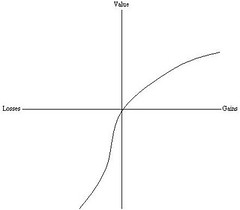I would like to talk about hiring practices in the technology field, in particular as those have an impact upon who does and does not get hired to work in technology. This is important because the tech industry talks a lot about limiting racism and sexism in their hiring processes (they’re ignoring age bias for the moment), but then the tech industry also talks about systems designed for interviewing candidates which are designed to result in high rates of false negatives. By “false negatives” they mean that more good candidates will be told that they don’t meet the needs or the requirements of the position – that they will err on the side of not hiring.
There’s fairly solid mathematical reasoning for why hiring this way does not make sense (read the extensive and geeky discussion on Hacker News). So, we have to ask, Why maintain this type of a hiring process if it results in poor organizational outcomes? And, if they’re maintaining this in the face of poor outcomes, we must further ask, What outcomes does this system actually have and are those outcomes the real reason for maintaining this type of a system?
I believe that this type of a system is designed to allow the bias (“culture”) of the organization to perpetuate. I believe that these hiring practices are designed to systemically discriminate, while pretending to be based upon merit. [side note: People are quite attached to the idea of meritocracy even in the face of proof that meritocracy actually results in worse outcomes for the organization (here’s a paper which proves that random promotions yield better organizational outcomes than merit-based promotions).]
When you design a system which yields false negatives, what you actually accomplish is to normalize the practice of making hiring decisions based upon gut feel and bias rather than upon objective criteria such as whether the applicant is really interested in the position or whether the applicant can do the job. That’s a big statement to make, but I think it’s proved out by the psychology.
We can evaluate this in terms of prospect theory and the framing effect, which pretty much describes the landscape of this decision. The framing effect plays a role here because the decision makers approach the interview having been told that it is better to mistakenly pass up a good candidate than it is to mistakenly hire a bad candidate. This framing puts the decision maker into the mindset of loss / risk aversion, which tends to be vastly more conservative than does a mindset of possible gains. When evaluating problems in a risk-averse or uncertain mindset, people attempt to reduce that risk or uncertainty however possible. In this mindset, hiring someone of the same general profile as oneself provides an immediate reduction in risk, so basically guarantees that candidates who are different (diverse) will be excluded.
This is not limited to the tech industry, by any means – I’m certain that these same problems are pervasive in other hiring systems. In tech, though, the big players have all made noises about diversity, and yet have maintained a system of hiring which continues to yield the same problematic hiring decisions. The tech industry is supposed to be the best and brightest – they certainly tell us that they are – yet it cannot seem to figure out how to hire women or blacks or Hispanics (or people aged over 35). This tells me that the noises made by tech are basic cover for not really wanting to solve the problem.
Tech companies are happy being pretty much white (and a few Asian) dudes and do not want to change. Tech companies want to mouth the right words about diversity, to maybe hire diversity officers, but they do not really have any interest in being diverse. They have designed hiring systems which are systematically discriminatory, but subtly so, which is problematic because it is the systemic problems which are hardest to fight.
I’m sure some of my reasoning in here isn’t as thorough as it could be. I don’t think that my reasoning is wrong, though – I think that the hiring systems of big tech companies essentially guarantee a lack of diversity, and that the companies are either uniformly ignorant of this or are happy for it to remain this way. Before you think that they’re ignorant of this, think about where psychology graduates go if they don’t become professors (hint: big technology companies, which is why everything tech is designed to be addictive).



